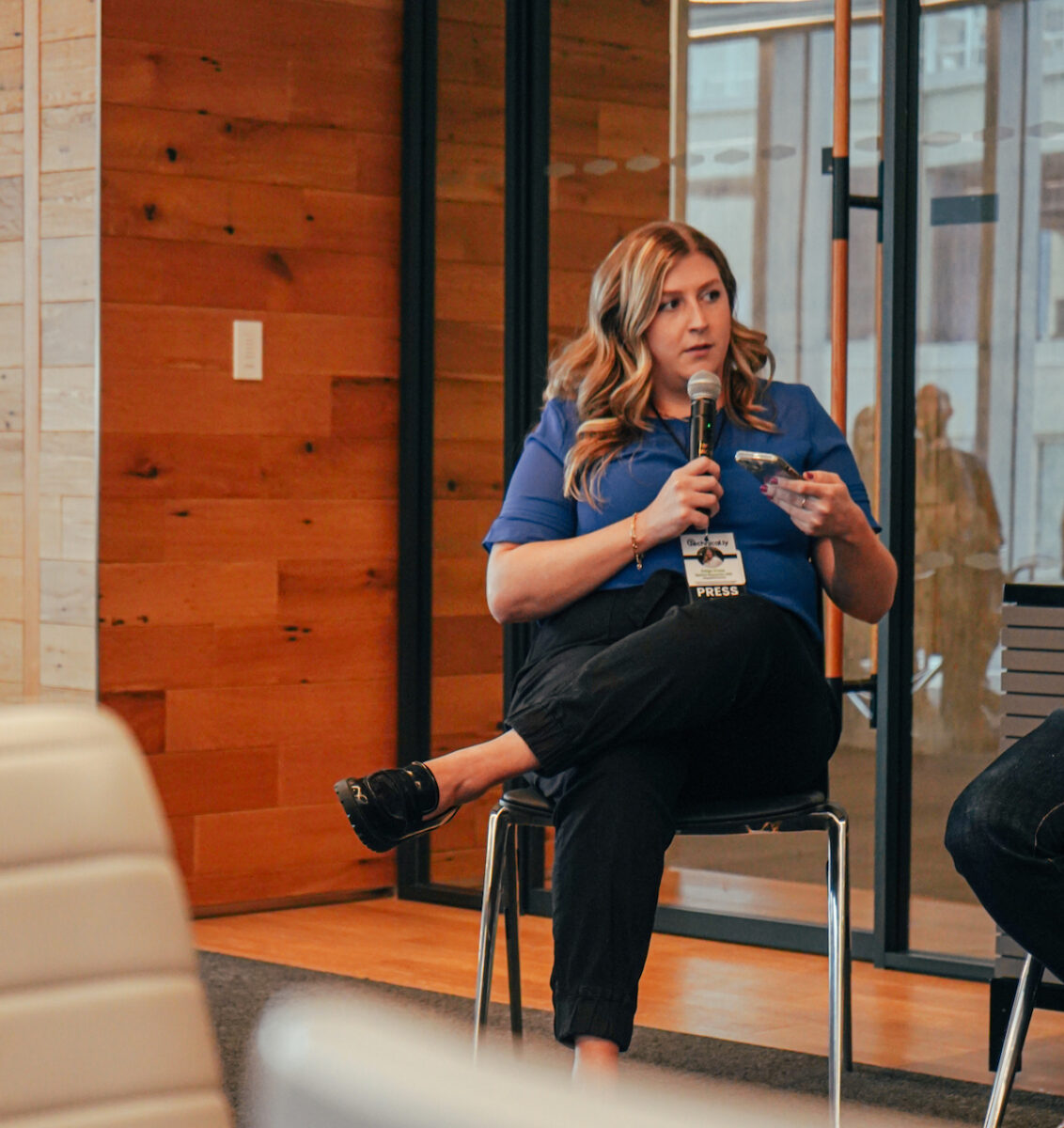It was one of the first questions Technical.ly CEO Chris Wink posed to me during my last-round interview to be Philly’s lead reporter in May 2019. I was looking to leave my role of two years covering crime, murder trials and breaking news across the state of New Jersey, working weekends and often evenings to write about the darkest moments of peoples’ lives.
To be quite honest, I told him, I don’t have a special desire to write about technology. Aside from one coding class my senior year of college (which I passed by the skin of my teeth), I knew next to nothing about it as a professional field. But I really liked the idea of working with and writing about smart people. It seemed like in a constantly evolving industry, where there’d be a deluge of new stories, topics and sources. It’s a journalist’s job to jump into topics we often don’t know about and dig deep. And I like a challenge, I said.
That’s not to say that when I started writing about the tech community here in Philadelphia a few weeks later, I didn’t feel impostor syndrome. I remember Googling things like “What is a seed round?” and “Is python a language?” several times in my first few weeks. I also wondered how being a woman in my 20s would affect my ability to get a seat at the table or an interview with a corporate CEO.
The startup and entrepreneurship scene was full of people like me, taking a chance on a new experience.
A few months in, I realized: The startup and entrepreneurship scene was full of people like me, taking a chance on a new experience. Building something to make the world work the way they hoped. Jumping in even though the chance of failing was higher than the chance at becoming the next big thing. While I have encountered the occasional prickly company leader or or evasive spokesperson over the last four years, the Philly tech community has turned out to be much more of a welcoming place than I was expecting.
And while the tools themselves — coding languages, hardware, software systems — are the news hook of the nearly 1,400 stories I’ve written in the last four years, the people-focused angles are what drove my coverage. When the pandemic hit the region about a year into my time at Technical.ly, the stories became just as much about how we’re feeling about work as the digital tools we’re using to get it done.
Some of the stories I’m proudest of during my tenure here have been taking a wide look at labor and how we work now. I was inundated was reports and statistics about women leaving their jobs left and right, but what did that look like in our home city? And amid a rise of conversations about DEI and accessibility, how do we make space for autistic people in tech?
Like the industry itself, I had to learn to pivot quickly. I appreciated the lessons learned from startup failures just as much as those startup successes. And I learned there that are moments of impact the whole community will feel together, like this year’s SVB collapse that affected up to half of all startups. Or a pre-pandemic event at Harp & Crown hosted by West Coast VC firm Accel, which would launch multiple companies in attendance into unicorn status in the years to come.
Being a tech reporter allowed me into the worlds of people who saw a different, malleable, evolving future for themselves and others.
What I’ve loved about Philadelphia since I moved here a decade ago is the same thing it’s tech scene deals with still today — we’re constantly underestimated. It’s a challenge I’ve often heard founders express: We don’t get the same funding, attention or resources as shinier tech cities.
Philly’s tech scene is an imperfect one. We know founders of color are underfunded and underrepresented here, and the gender breakdown of our workforce is far from equitable. Founders here will likely experience “the Philly hickey” — the idea (or mark) that being based in Philly might undersell or undervalue your company while you’re fundraising — for years to come. But in a time where most founders can plant their flag anywhere, or nowhere, lots still choose here.
One founder from our 2023 RealLIST Startups recently told us Philly “doesn’t do enough to kind of celebrate our wins.” I tend to agree.
While I won’t be the one writing about those successes for Technical.ly after this week, I do have a better answer for Chris. Being a tech reporter allowed me into the worlds of people who saw a different, malleable, evolving future for themselves and others.
And as I depart this role after four years and hundreds of stories later, I leave with a different attitude about work, community journalism and taking a chance for the sake of seeing if you can build something better.
Before you go...
Please consider supporting Technical.ly to keep our independent journalism strong. Unlike most business-focused media outlets, we don’t have a paywall. Instead, we count on your personal and organizational support.
Join our growing Slack community
Join 5,000 tech professionals and entrepreneurs in our community Slack today!

The person charged in the UnitedHealthcare CEO shooting had a ton of tech connections

From rejection to innovation: How I built a tool to beat AI hiring algorithms at their own game

How a laid-off AI enthusiast pivoted to become a founder — while holding down a day job



